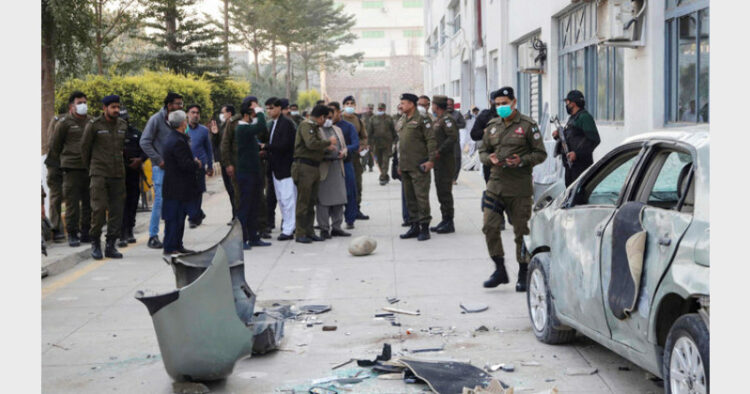Was it possible the 'mob' mistook the Sri Lankan as an Indian as the ill-fated victim was identified as Priyantha Kumara? But justice in blasphemy cases can hardly come to Pakistan. Section 295A of the Pakistan Penal Code, which deals with blasphemy, is infamous for being abused by religious fanatics against minority communities–Ahmadi, Shias, Hindus, Sikhs and Christians.
New Delhi: 'Mob lynching' has struck Pakistan and left Imran Khan-ruled country into a "national shame." None other than the former cricket star-turned-politician has said so.
Left embarrassed to the core because of the mob lynching of a Sri Lankan in Sialkot in Pakistan, Prime Minister Imran Khan on Saturday (December 4) spoke over the phone to Sri Lankan President Gotabhaya Rajapaksa "to convey our nation's anger and shame" to the people of the island nation.
"Spoke to Sri Lankan President Gotabhaya Rajapaksa to convey our nation's anger and shame to people of Sri Lanka at the vigilante killing of Priyantha Diyawadana in Sialkot. I informed him that over 100 people (were) arrested and assured him they would be prosecuted with full severity of the law," Imran Khan tweeted.
Certain questions do arise about the manner the gory episode took place. Sri Lankan Prime Minister Mahinda Rajapaksa earlier said he was "shocked by the brutal and fatal attack" on the ill-fated Sri Lankan and hoped that Pakistan and its leadership would fulfil the 'commitment' to penalise those involved in the killing.
"My heart goes out to his wife and family. #SriLanka and her people are confident that PM (Imran Khan) will keep to his commitment to bring all those involved to justice," the Sri Lankan PM wrote on the microblogging site.
The incident in Sialkot was the second such gory episode in the last 15 years. Otherwise, Pakistan and Sri Lanka share what is perceived to be a normal type of people-to-people ties.
Pakistan authorities were left red-faced for the attack on the Sri Lankan cricket team bus in 2009. The 2009 attack on the Sri Lanka national cricket team occurred on March 3 when 12 gunmen fired upon a bus carrying Sri Lankan cricketers near Gaddafi Stadium in Lahore.
The attack was believed to have been carried out by Lashkar-e-Jhangvi. In August 2016, it was given out that three of the terrorists involved in the attack were eliminated. Six members of the Sri Lanka team were wounded, and six Pakistani policemen and two civilians were killed.
Of course, Pakistan has been facing embarrassment by not being able to host foreign teams in the cricket-frenzy nation. The New Zealand team had pulled out in September after a security alert, and only Zimbabwe had played in Pakistan last year.
Reports in Pakistani media said Special Assistant to the Punjab Chief Minister on Information Hasaan Khawar said 118 people had been arrested for the December 4 attack on the Sri Lankan identified as Priyantha Kumara of Rajko Industries.
Around 200 raids had been conducted, and that among those detained were 13 primary suspects. "I want to again reassure you that justice won't only be carried out but will be seen to be carried out," he said, adding action would also be taken even if officials were found to be negligent in their duties. Kumara was tortured to death, and his body was set on fire.
Retired Indian diplomat Preet Malik, India's envoy to Bahrain, Cuba, Singapore and Myanmar, said this was the work of a "religiously fanatic mob".
"Pakistan lives up to its reputation of being a dangerous space to live in where extremist elements hold sway lynching of expatriate Sri Lankan executive by a religiously fanatic mob confirms this," said Malik in a tweet.
In September, the Human Rights Commission of Pakistan expressed concern at the surge in blasphemy cases in the country.














Comments